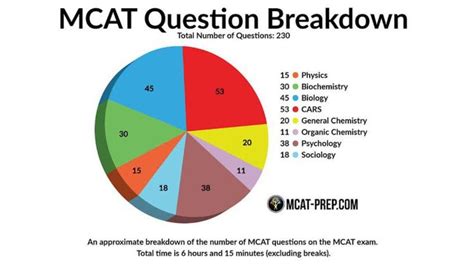Introduction

The Medical College Admission Test (MCAT) is a standardized exam required for admission to U.S. medical schools. With its comprehensive assessment of foundational scientific knowledge and analytical skills, the MCAT plays a crucial role in determining students’ chances of pursuing their medical careers.
As an aspiring medical student, you likely ponder the average MCAT score required for Temple University’s Lewis Katz School of Medicine. This prestigious institution attracts exceptional candidates with solid academic backgrounds and career aspirations. Understanding the temple average MCAT can provide valuable insights into your preparation strategy.
MCAT Performance at Temple University
According to data from the American Association of Medical Colleges (AAMC), the average MCAT score for first-year medical students at Temple University for the 2021-2022 application cycle was 513. This score represents the median of all matriculating students, indicating that half of the class scored above 513, while half scored below.
National MCAT Averages
To put Temple University’s average MCAT score in context, it is essential to compare it to national averages. The AAMC reports that the average MCAT score for all U.S. medical school applicants for the same cycle was 504. This figure suggests that Temple University’s average MCAT score is slightly higher than the national average.
Percentile Rankings
Understanding your MCAT score relative to other test-takers can provide a clearer sense of your preparation level. According to the AAMC, a score of 513 corresponds to the following percentile rankings:
| Percentile | Score Range |
|---|---|
| 75th | 513-517 |
| 50th | 504-512 |
| 25th | 499-503 |
Factors Influencing MCAT Scores
Numerous factors can influence an individual’s MCAT performance. These include:
- Premedical coursework: A strong foundation in the natural sciences, mathematics, and social sciences can significantly boost your MCAT score.
- Study habits: Effective study techniques, such as spaced repetition and active recall, can enhance your knowledge retention and recall.
- Test-taking skills: Developing sound test-taking strategies, such as time management and question analysis, can improve your performance under pressure.
- Individual strengths and weaknesses: Identifying your strengths and areas for improvement allows you to tailor your preparation to your specific needs.
Improving Your MCAT Score
If you aspire to achieve a higher MCAT score, consider implementing these strategies:
- Plan early: Start studying well in advance of your test date to allow ample time for preparation.
- Establish a study schedule: Create a consistent study schedule and stick to it as closely as possible.
- Utilize high-quality resources: Leverage prep books, online courses, and practice exams from reputable sources.
- Attend MCAT review classes: Consider enrolling in MCAT review classes for additional guidance and support.
- Practice regularly: Engage in regular practice to improve your knowledge retention and test-taking skills.
Table 1: MCAT Averages by Section
| Section | Average Score |
|---|---|
| Biological and Biochemical Foundations of Living Systems | 126.4 |
| Chemical and Physical Foundations of Biological Systems | 125.2 |
| Psychological, Social, and Biological Foundations of Behavior | 125.9 |
| Critical Analysis and Reasoning Skills (CARS) | 130.5 |
Table 2: Average MCAT Scores for Top Medical Schools
| School | Average MCAT Score |
|---|---|
| Harvard University | 528 |
| Stanford University | 521 |
| Johns Hopkins University | 521 |
| University of Pennsylvania | 519 |
| Yale University | 520 |
Table 3: Study Habits for High MCAT Scores
| Habit | Description |
|---|---|
| Spaced Repetition: Reviewing material at increasing intervals to enhance memory | |
| Active Recall: Testing yourself on material without notes to improve recall | |
| Retrieval Practice: Regularly retrieving information from memory to strengthen neural pathways | |
| Flashcards: Using flashcards to reinforce key concepts and vocabulary | |
| Mind Mapping: Creating visual representations of concepts for better understanding |
Table 4: MCAT Test-Taking Tips
| Tip | Description |
|---|---|
| Time Management: Manage your time wisely, allocating more time to challenging questions | |
| Question Analysis: Carefully read and understand each question before answering | |
| Eliminate Distractors: Focus on identifying the correct answer rather than eliminating wrong answers | |
| Guessing: Use educated guesses if you are unsure of the answer, as there is no penalty for guessing | |
| Review: Review your answers before submitting the exam, especially if you have any doubts |
Conclusion
The temple average MCAT of 513 indicates that Temple University seeks candidates with a strong academic foundation in the sciences and critical thinking skills. While this score may appear daunting, it is achievable with dedicated preparation and a strategic approach to studying. By understanding the MCAT performance at Temple University, comparing it to national averages, and implementing effective study strategies, you can increase your chances of success on the MCAT and pursue your medical aspirations.
